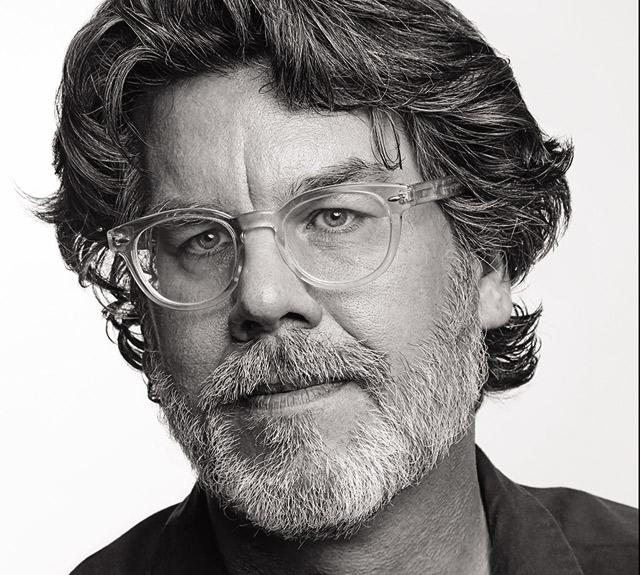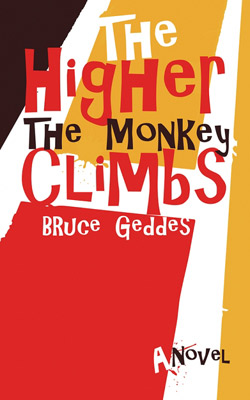
While his fiction has appeared in various magazines, Toronto writer Bruce Geddes has also written two books for Lonely Planet and worked as a producer for the CBC. With an MA in Latin American Literature, he’s a graduate of the Humber School for Writers. The Higher the Monkey Climbs, is a compelling debut novel, melding mystery, family honor and emotional turbulence, attempting to resolve a family’s distorted past while examining human morality.
Wanstead is a fictional city, but does it draw on a place you knew?
Related Posts
Wanstead is a totally fictional city closely based on Windsor, Ontario where I grew up. I changed the name because I wanted to change some pretty basic facts of Windsor history and geography. It’s kind of funny how simply changing the name of the city absolves the author of all geographical and historical errors.
As far as drawing on the place I knew, it really draws on the place I remember and not necessarily the city as it is today. Or even was, since my way of looking at a city as an eighteen-year old may have lacked some depth. Still, the relationship we have to places in our memory is kind of interesting. There’s a scene in the book where the narrator is driving down a major street, noticing the changes and he’s kind of pissed off about them. On the surface he’s disappointed that local legendary businesses have shut down, but below that is this is this feeling of personal offense. Like how dare the city change without his permission.
Interesting side note: There is a place in Ontario called Wanstead. Or there used to be. It’s a ghost town now but was best known for a terrible train crash back in 1902 that killed thirty-one people. I only know about the crash because a relative of mine (like a second cousin four times removed) was one of the victims.
But you still rely on history. The Ford strike of 1945, for example, seems to be echoed in the post-war strike at Krull’s that launches Forzante’s career.
Right. But in a highly fictionalized way. Though one of the things I borrowed directly was when the workers and their supporters parked their cars around the plant so that no one could get in. And the other thing is that the strike was seen as a major victory for labor and probably gave the UAW as a power broker. That was probably the beginning of the golden age for labour, especially in manufacturing. In the book, what I was trying to say is that this is what gave Forzante his power.
 The protagonist’s father Gord has a metamorphosis of sorts as he comes of age, leaving the working class community and becoming “a certified gentleman”. This scene plays out with such a gossipy vibe to it. Again, did you draw on anything from your own life or a story in real life. It seems so authentic.
The protagonist’s father Gord has a metamorphosis of sorts as he comes of age, leaving the working class community and becoming “a certified gentleman”. This scene plays out with such a gossipy vibe to it. Again, did you draw on anything from your own life or a story in real life. It seems so authentic.
That “certified gentleman” bit comes from the fact that back in those days, all one needed to get into law school was an undergraduate degree and letters from a lawyer or two certifying that you were a gentleman. This is anecdotal and may not be true but it fits doesn’t it? That old school tie clubbiness? A different kind of g(u)ilded age I guess.
Gord’s “metamorphosis” is more imposed by (his eventual boss) Forzante than by Gord himself. He was already heading to university but it was Forzante who, seeing Gord as a possible threat to his power, encourages him to go to law school, knowing this would set him apart from the rank and file and perhaps make him less trustworthy because he belonged to the lawyer’s ‘club’. Forzante needs Gord to consolidate his power, but he’s also wary of Gord generating and employing his own sources of power. It’s kind of like Stalin and Trotsky. Or Chretien and Martin to choose an closer-to-home example.
How did your work with the Lonely Planet series help you or did it in writing The Higher the Monkey Climbs? What sort of external influences helped shape your first novel?
Working for Lonely Planet sucks. The travel is great and people seemed to be impressed when you tell them you wrote for LP but the truth is, it sucks. I wrote two Food and Drink guides for them, spending six weeks in Mexico and another six in the Caribbean. Six weeks isn’t long enough to get into the food culture of one Mexican city, much less the whole country. Same for the Caribbean. Also, they give you a lump sum and you cover your expenses and whatever is left over is your pay. So the incentive is actually to stay in one place and eat cheaply and not explore. What’s more, they don’t give you royalties so I have no incentive to try to convince people to buy my book. Instead, I can tell them the truth: Both of them are about the last books you should read to learn about Food and Drink in Mexico or the Caribbean.
Les “Survivorman” Stroud makes a few appearances in the book. What led to that choice?
First of all, I love the show. Have you ever seen it? It’s great. This guy, Les Stroud, simulates survival situations. Like his car breaks down in the middle of the Kalahari Dessert, or he’s stuck in the Arctic. No food, limited equipment. He has to figure out how to live for seven days. So he fashions traps and fishing hooks or forages for edibles and has all kinds of ingenious ways to light a fire and build a waterproof shelter.
In the novel, all the characters face the need to survive in a new environment. Nothing so extreme as Les Stroud but it’s there. It’s why Sagipa is learning Mandarin, why Manolo abandons his Marxist ideology in favour of book deals and movie rights. Tony’s trouble is that he’s not as adept at adaptation as the others. He’s sort of stuck in a time when things more or less worked for him and hasn’t been able to move on. “Survivorman” was the perfect metaphor.
Would Tony have voted for Trump?
Ha! God, I hope not. But I see why you’re asking. He’s a white working class middle aged guy who’s making less money than he made twenty years ago. Things aren’t working out for him and he’s just the kind of guy the Trump machine preyed on with promises of a return to American greatness. I wrote the book well before the elections of 2016 but I can see the resemblance. I don’t think Tony would have bought into Trump’s vision of America. He’s got this sense of honor that wouldn’t have been offended by Trump. Yeah, he shares some of those Trump-voter frustrations, but the Trumpian solutions would have disgusted him.